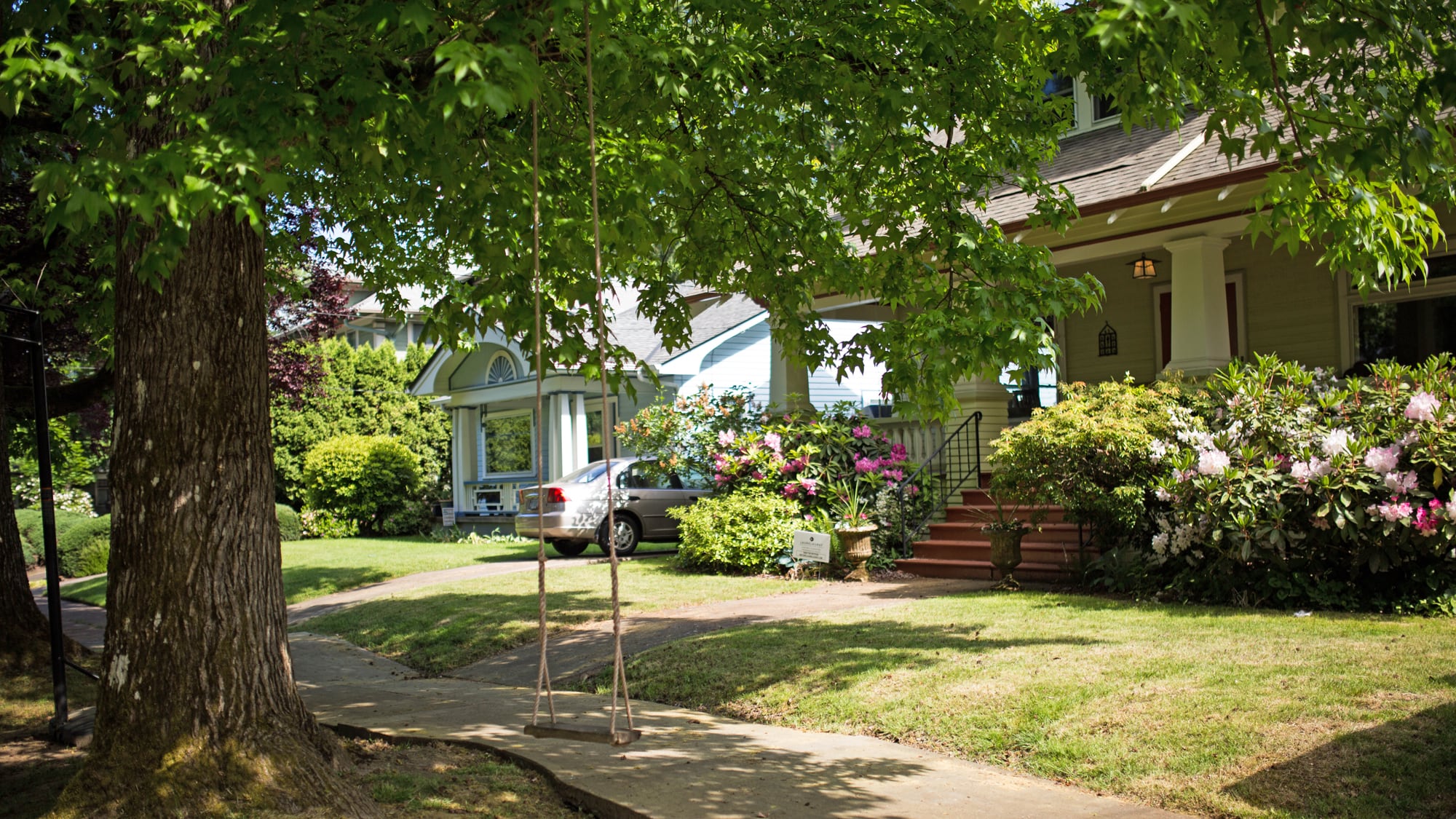Portland's Eastmoreland neighborhood now has another shot at becoming a historic district.
The National Park Service has asked the state to reconsider Eastmoreland's request to become a historic district. At issue is whether people who have divided ownership of their homes into multiple trusts should have multiple votes in blocking the creation of the historic district.
The neighborhood's original application to become a historic district was filed last year in advance of the city's residential infill project, which is expected to increase the number of units allowed on lots in single family neighborhoods.
The drive to create a historic district was designed to block the creation of more housing in the quiet residential neighborhood, critics say. Proponents say that creating a historic district will prevent demolitions, while opponents argue the designation raises the cost of owning and repairing a home.
The state last year sent the application to the National Park Service, which ultimately approves historic districts, without a recommendation to approve it. Instead, the State Historic Preservation Office included a request for guidance on how to determine who was eligible to object to the formation of the district. But the feds said the state needed to decide.
In April, a handful of residents who didn't want their neighborhood to be a historic district divided ownership of their homes between thousands of trusts and were granted one vote per trust, meaning that the owners objecting to the formation of a historic district quickly met the 50 percent plus benchmark to block the district's formation.
The state submitted the application again to the feds, in April, saying that the vast majority of owners, a definition the state had determined included the trusts, had objected, meaning there would be no historic district.
That decision has sparked neighborhood outrage and a lawsuit.
But now, in a June 29 letter, the National Park Service told the state to more carefully consider their assessment—"to ascertain whether these trusts are valid"—to determine who an owner is.
SHPO spokesman Chris Havel said the agency "will develop a plan to respond."
The Eastmoreland Neighborhood Association put out a press release criticizing the state's decision to count the trust as official objections.
"This is the second time that the SHPO failed to provide an accurate count of owners and objectors—this time because of the failure to discover and follow state and federal law regarding the recognition of 5,000 trust entities formed by four households," said Eastmoreland Neighborhood Association Rod Merrick.
Opponents of the historic district took a dim view of the process generally, but said the federal government should honor the state's decision.
"SHPO said we got enough objections and the federal government should honor that," said Tom Brown.

